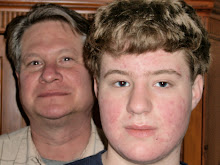Released: 1957
Genre: Family fun mixed with travelogue
Notable for: Clint's last uncredited movie role
Clint's subliminal message: "Damn! I'm a walk-on again."

As we settled in to enjoy "Escapade in Japan" with a bounty of delicious laboratory-produced beef-like material from Arby's, the gay issue surrounding early Eastwoodism could no longer be ignored.
But first, let's ignore it long enough to evaluate this movie on its own merits. "Escapade in Japan" is the only film released in 1957 with even a brief appearance by Clint. Only a fool would have predicted he was nearing the brink of Hollywood stardom.
The movie is a mixture of Little Rascals-styled adventures and travelogue shot in Japan. We judge it good family fare.
Two boys, one American and one Japanese, run away together and stumble across many colorful sights. The American boy is 7-year-old Jon Provost, who would later melt a nation's dog-loving heart as Timmy on the "Lassie" TV show. The plot climaxes when two sets of parents separated by a language barrier but united in parental love find their sons. Anyone who needs a spoiler alert for that is beyond hope.
 The child stars do not deliver strong acting but they make up for it by being cute. There is a good-natured spirit running through this film because, just 12 years after World War II, it is relentlessly intent on humanizing the Japanese.
The child stars do not deliver strong acting but they make up for it by being cute. There is a good-natured spirit running through this film because, just 12 years after World War II, it is relentlessly intent on humanizing the Japanese.Clint's role is entirely forgettable. He delivers two lines as the pilot of a rescue plane searching for survivors of a plane wreck that starts the American boy's adventures. After a fairly substantial role in his previous film, Clint once again has a part so minor he is not listed in the credits. That would never happen again. (Hooray! Because we are sick of it.)
OK, now the gay thing.
"Escapade in Japan" was the fourth and final movie of Clint's career directed by Arthur Lubin, a Hollywood workhorse many sources (here's one) say was gay.
Aside from Clint himself, Lubin is the man most responsible for establishing Eastwood in Hollywood. Lubin played a key role in getting Clint's contract with Universal studios. He cast him in four films through 1957, nearly half of Clint's movie work in those years. Clint's two biggest roles up to this point were both in Lubin films, "Francis in the Navy" and "The First Traveling Saleslady."
Andrew contends The Clint Eastwood Project should not mention that Clint's mentor was gay. He says it looks like we are insinuating a sexual relationship. "That's crap an you know it," he says.
So no, we are not insinuating a damn thing.
But Brad finds the Lubin connection ironic considering Clint was sometimes accused of gay-bashing in later roles.
More importantly, it is entirely reasonable to imagine that without Arthur Lubin , Clint may never have worked in movies long enough to catch a break.
When the world's icon for masculinity might not exist except for the support of a gay guy, that's worth mentioning.
Next up: "Lafayette Escadrille."


No comments:
Post a Comment